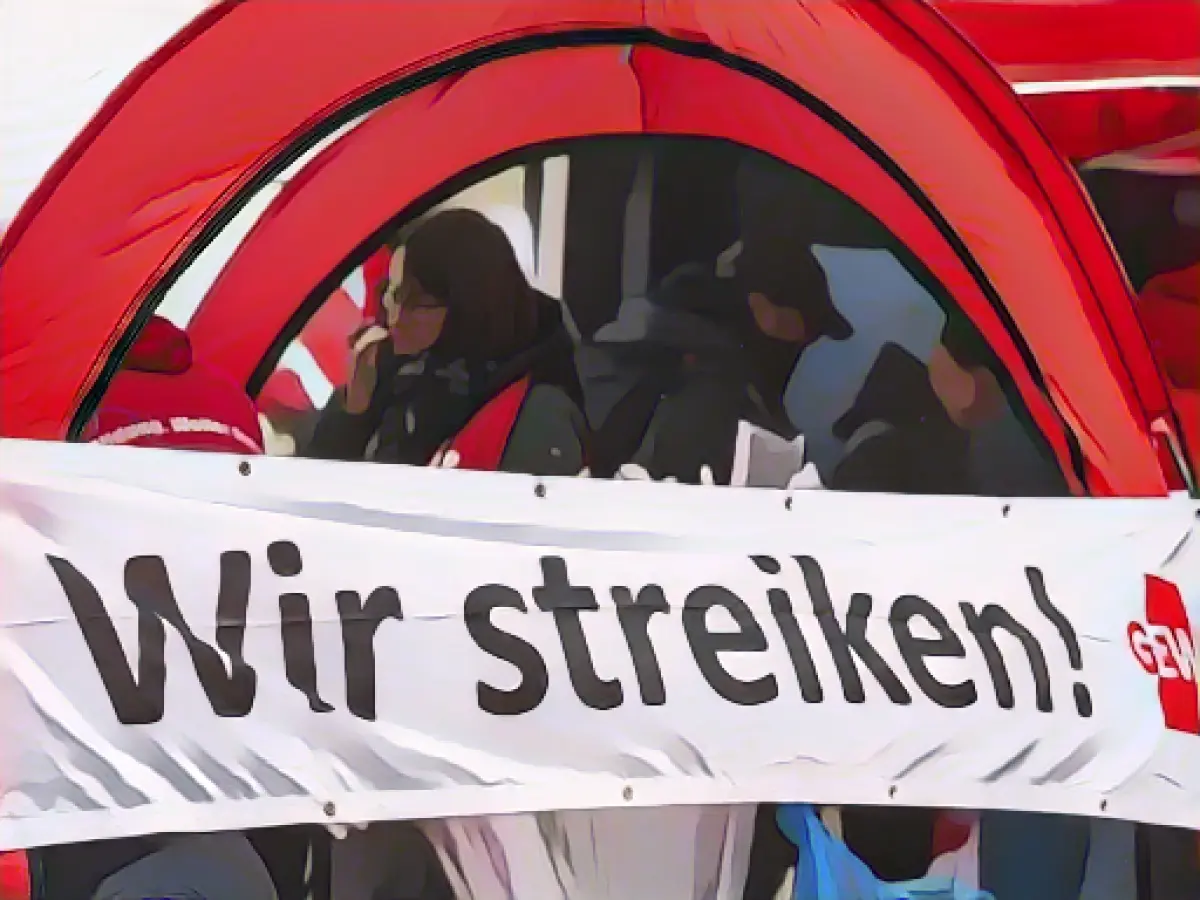Another day of educational disruption looms over Berlin families as educators and teachers along with university employees and social workers partake in another round of strikes. The Verdi and GEW unions are encouraging their members in Berlin's daycare centers to participate in a warning strike, demanding better pay and conditions. Approximately 20% of Berlin's daycare children attend municipal facilities which may be affected, with similarly affected schools, kindergartens, and various offices joining the strike. Protest demonstrations and rallies are scheduled for Berlin-Mitte as part of the nationwide Education Strike Day.
The root cause of this ongoing discord lies in the current pay dispute in Germany's public sector. Although two rounds of negotiations have passed, no agreement has been reached yet. Negotiations are ongoing across the country, with the next scheduled for late December. During this period, the unions have repeatedly emphasized their requirements through Berlin warning strikes.
Verdi & Co are demanding a substantial 10.5% pay increase over the next 12 months, including a minimum raise of 500 euros each month. Trainees would see an increase of 200 euros. Additionally, a city state bonus of 300 euros is sought for Berlin, Hamburg, and Bremen. No formal response has been made by the employers to date.
The escalating public sector wage dispute has triggered a series of escalating actions, including tariffs on childcare center services in Berlin. This may affect not only municipal centers but also kindergartens, as educators and teachers participate in the strikes. Moreover, indirect consequences could reach the Federal Administration, potentially affecting various public services.
The unions are pushing for substantial pay increases and improved working conditions, leading to striking actions across Germany, affecting essential services such as childcare, public transportation, healthcare, and higher education. The unions' demands are believed to be high, and compromise is being sought by all parties involved. An agreement may not be reached before mid-March at the earliest, leaving the affected services and communities in limbo.
- Unions such as Verdi and DBB Civil Service Association have demanded an 8% pay increase, including a minimum raise of 350 euros ($364) each month for public sector employees[1]. Additional demands include three extra days off for all staff and four extra days off for union members, as well as overtime bonuses for part-time staff and more money for trainees[1].
- Employers, led by Interior Minister Nancy Faeser, have described the unions' demands as "very high" and have expressed a willingness to compromise, acknowledging budgetary constraints[1].
- The Berlin-Brandenburg Transport Association (BVG) has already gone on strike, with subway pilots, bus drivers, and tram captains participating in a 24-hour strike. The union Ver.di is seeking bonuses for shift work and an extra month's holiday pay, known as the 13th month's pay in Germany[2].
- Public transport has been affected by the BVG strike with yellow vehicles standing still from 3 AM until 3 AM the next day[2]. Non-medical employees at Vivantes and Charité hospitals in Berlin went on strike, potentially leading to the postponement of elective surgeries on February 13 and 14[2].
- Higher education institutions in Berlin have already faced cuts due to budget constraints, with universities like Humboldt University and Universität der Künste (UdK) halting new professor hiring and slashing their budgets by 8.8%[2].
As this pay dispute continues, numerous public services may be disrupted, impacting families, students, and the general public, with a negotiated settlement still far off.








